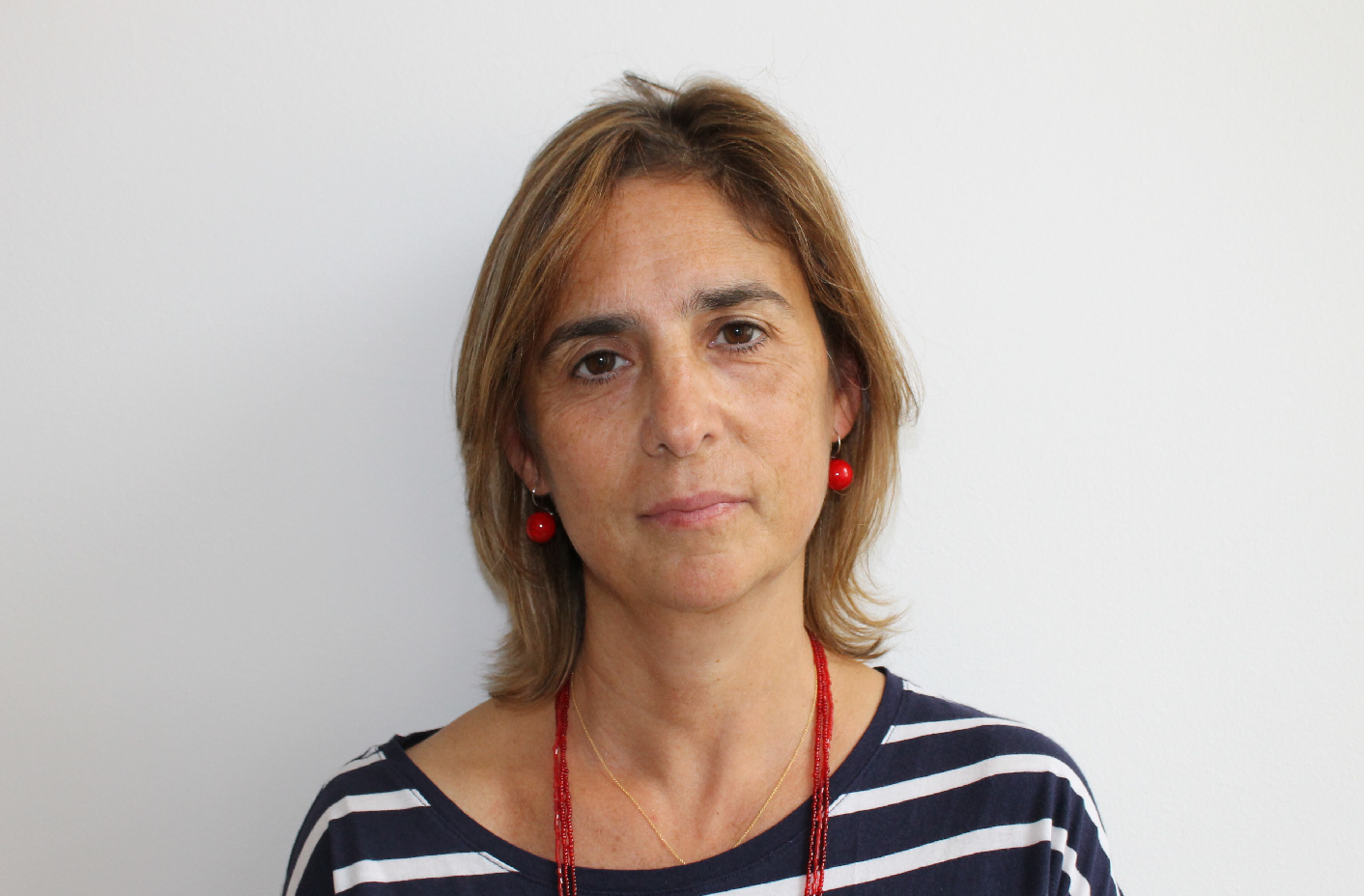
- +351 213 652 600
- +351 213 632 105
- Enviar Mail
- Download CV
- Orcid
- NOVA Research
Ana Gonçalves Domingos
Grupo GHTM: VBD PhD members, Vector-borne diseases and pathogens
Ana Gonçalves Domingos is assistant researcher at the Institute of Hygiene and Tropical Medicine, Universidade NOVA de Lisboa (IHMT/UNL), since 2010. She has a PhD in Biology by University of Lisbon (1997) and did the Habilitation in Biomedical Sciences -Parasitology, UNL (2011). She is the head of the “Tick and tick transmitted diseases” group (including currently, two researchers, two PhD students and 2 MSc students).
She published 75 papers, 3 books and 2 book chapters. H-index 16, 831 times cited. Last 5 years, participated in 8 (5, as PI) funded projects. Currently, she participates in two Cyted networking.
Ana Domingos main research activities are focused on Vectors and Vector Borne Diseases. Current Research Interests include:
- Infectious diseases
- Ticks and tick-borne diseases
- Molecular biology of host-vector-pathogen interactions
Aligned with the research priorities of the GHTM – group “Vector borne-diseases and pathogens”, the research studies of the team which she is the leader, looks for a deeper insight into vector and parasite relationship to obtain fundamental information on key elements of parasite development and host-parasite interactions towards vector and disease control. Such studies have been developed under funded projects, using of methodologies such as proteomics, transcriptomics and functional genomics. Recently, the group used these strategies to reveal diferences in protein content versus vector competence. These methodologies are being further used for the identification of molecules showing to act as potential vaccine candidates and drug targets selected from both parasites and vectors of diseases having a great human health and animal production impact such as malaria, babesiosis and theileriosis.
The immunoinformatics is, as well, an important tool used to infer about vaccine candidates immunogenecity.
To date, different vector transcriptomes and proteomes were explored, genes/antigens evaluated for their role on vector biology and pathogen infection and were further tested in pilot vaccination trials.
- Couto J, Villar M, Mateos-Hernández L, et al. (2020). Quantitative Proteomics Identifies Metabolic Pathways Affected by Babesia Infection and Blood Feeding in the Sialoproteome of the Vector Rhipicephalus bursa. Vaccines (Basel). 8(1):91. https://doi.org/10.3390/vaccines8010091
- Estrada-Peña A, Nava S, Tarragona E, Bermúdez S, de la Fuente J, Domingos A, Labruna M, Mosqueda J, Merino O, Szabó M, Venzal JM & Guglielmone A. (2019). Species occurrence of ticks in South America, and interactions with biotic and abiotic traits. Sci Data, 6: 299. doi: 10.1038/s41597-019-0314-0
- Antunes S, Couto J, Ferrolho J, Sanches GS, Merino JO, la Cruz-Hernandez D, Mazuz M, Villar M, Shkap V, de La Fuente J and Domingos AG. (2019). Transcriptome and proteome response of Rhipicephalus annulatus tick vector to Babesia bigemina infection. Frontiers in physiology, 10, p.318. https://doi.org/10.3389/fphys.2019.00318
- Couto J, Antunes S, Pinheiro-Silva R, do Rosário V, de la Fuente J, Domingos A. (2017). Solute carriers affect Anopheles stephensi survival and Plasmodium berghei infection in the salivary glands. Sci Rep 21;7(1):6141. doi: 10.1038/s41598-017-06317-6
- de la Fuente J, Antunes S, Bonnet S, Cabezas-Cruz A, Domingos AG, Estrada-Peña A, Johnson N, Kocan KM, Mansfield KL, Nijhof AM, Papa A, Rudenko N, Villar M, Alberdi P, Torina A, Ayllón N, Vancova M, Golovchenko M, Grubhoffer L, Caracappa S, Fooks AR, Gortazar C, Rego ROM. (2017). Tick-Pathogen Interactions and Vector Competence: Identification of Molecular Drivers for Tick-Borne Diseases. Front Cell Infect Microbiol. 7:114. https://doi.org/10.3389/fcimb.2017.00114